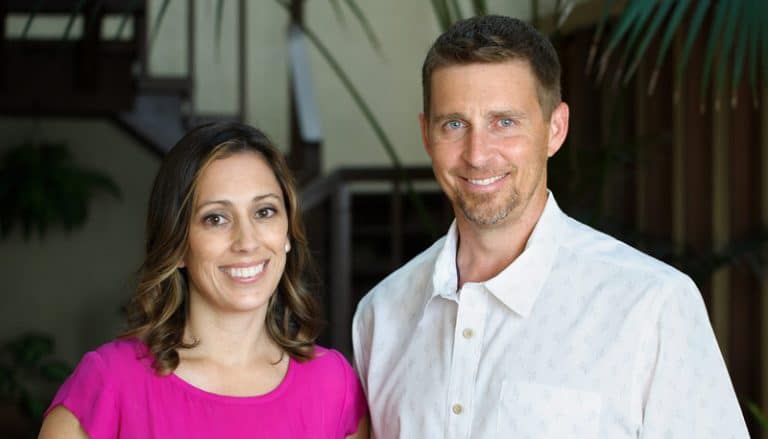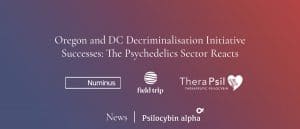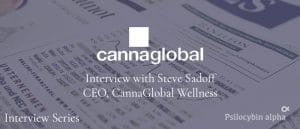As psychedelic medicines emerge as alternatives to conventional mental health therapies, we’re increasingly interested in how they will be administered on a practical level.
We spoke to Jake Hollingsworth, DO, owner and operator of Pacific Psych Centers, a medical clinic that offers—among other treatments—IV ketamine infusions and Spravato (esketamine) for depression. We were particularly interested in how the Center’s clients have received these existing ketamine-based therapies, and how Jake is preparing to offer additional psychedelic medicines as soon as they become available.
Thanks for taking the time to talk to us. Could you tell us a little about your clinic, especially the ketamine therapies you offer?
My wife, who is a board-certified anesthesiologist, and I (I’m a board-certified psychiatrist) run an outpatient psychiatric clinic in Del Mar, California where we offer several treatment modalities including psychiatric medication management and psychotherapy, as well as providing IV ketamine infusions, intranasal esketamine (Spravato), Transcranial Magnetic Stimulation (TMS), men’s hormone replacement therapy, and injectable nutrients. We primarily treat anxiety and mood disorders, and we accept insurance directly for most of our services, with the exception of IV ketamine which is a self-pay treatment. We officially started our practice in late 2015, and it has evolved into what it is today. In the future we hope to bring in psychedelics as treatments, specifically MDMA and psilocybin assuming they eventually obtain FDA approval.

What level of demand have you experienced for IV ketamine and Spravato/S-ketamine?
Demand for both has been high and continues to grow. Spravato, being newer and with a much heavier marketing presence from the pharmaceutical industry, is growing at a much faster rate. The demand for ketamine is still growing, but not at the exponential rate that Spravato’s demand is growing. Most cities are somewhat saturated with “ketamine clinics,” so the demand has dropped nationwide.
And, what’s the general consensus from your clients on those treatments?
More success than not. Treatment-resistant depression, by definition, is tough to treat, so when we have a 50-60% success rate in that population of patients with either ketamine or esketamine: I would say that’s good. The intensity of the effect of IV ketamine infusions is much stronger and more altering than intranasal Spravato, but the outcomes regarding depression treatment are very similar between the two treatments. Both are generally well-tolerated and very safe from what I have observed. Our clinic has much more experience with IV ketamine infusions (around 5,000 treatments today) compared with Spravato treatments, which we have done around 300 over the past year.
Have (prospective or current) clients enquired about other psychedelic medicines?
There is a lot of “buzz” around the potential for the FDA approval of MDMA and psilocybin, and I hear of some patients that are pursuing it on their own. Some are learning how to procure mushrooms via YouTube, some are travelling to South America for ayhuasca retreats, etc.
How do you think the emergence of psychedelic medicines like MDMA and psilocybin will be different to that of medical marijuana?
The biggest difference between MDMA and psilocybin will be the FDA-approval aspect. Cannabis is not FDA-approved for any medical indications. The other issue is that the evidence and efficacy of MDMA and psilocybin for psychiatric indication is substantial, almost hard to believe actually. If the studies continue to show off-the-charts efficacy and safety, these substances are going to blow cannabis out of the water. The only two FDA-approved medications for PTSD are Paxil and Zoloft, and as a psychiatrist I can say that the efficacy is very limited and even when these two medications are effective, they usually come at the cost of significant advese effects like weight gain, sexual side effects, daytime sedation, etc.
What work are you carrying out to prepare to administer MDMA and psilocybin?
We are looking into the MAPS protocols for use and we plan to attend the MAPS training. We plan to build out an MDMA and/or psilocybin treatment room(s) at our clinic. I am going through all the literature and evidence so that we can utilize these medications as soon as it’s legal to do so. We are in the process of creating content for our website regarding these potential treatments for patient education.
What use cases will MDMA and psilocybin cover that IV ketamine and S-ketamine cannot?
MDMA will likely be FDA-approved for PTSD, IV ketamine is only FDA-approved for use as an anaesthetic (and not for any psychiatric purpose), and S-ketamine is only FDA-approved for Major Depressive Disorder (MDD). Those are very important facts because FDA approval as a medication (regardless of the indication) makes it legal for doctors to prescribe it. What it’s FDA-approved for is important because it affects what the insurance companies will pay for. When patients pay out of pocket (i.e., don’t use insurance to pay for treatment), the indications for prescribing are up to the doctor and patient. For example, IV ketamine is not FDA-approved for any psychiatric indications. Doctors can prescribe it for depression as an “off-label” treatment, but the insurance companies won’t cover it. But there will be a lot of overlap in patients across diagnoses, and some will need to wait until insurance companies roll out protocols and policies to pay for them. In the beginning, the patients who are willing to pay out-of-pocket will be the first to have these treatments (psychedelics). We are still slowly rolling out Spravato treatments for patients (despite the demand) more than a year after FDA-approval because the insurance companies have hardly reimbursed our clinics for the treatments we have done to date. Very frustrating for the clinic and for the patients!
Also, for MDMA and psilocybin to be used, patients must be off most psychiatric medications due to the drug-drug interactions. Some patients won’t be able or willing to do this for various reasons. Ketamine has almost zero significant drug-drug interactions so patients don’t need to change their medication regimens. This is an important issue.
In terms of timelines, when do you envisage being able to administer these medicines and therapies in your clinic?
As soon as possible! Assuming they are FDA-approved and we are able to prescribe them using safe and effective protocols we will start utilizing them as soon as they are available. MDMA may be available in 2021/22 and psilocybin will likely be a few years behind MDMA.
Join our Newsletter
Get our interviews delivered to your inbox by signing up to our newsletter.






